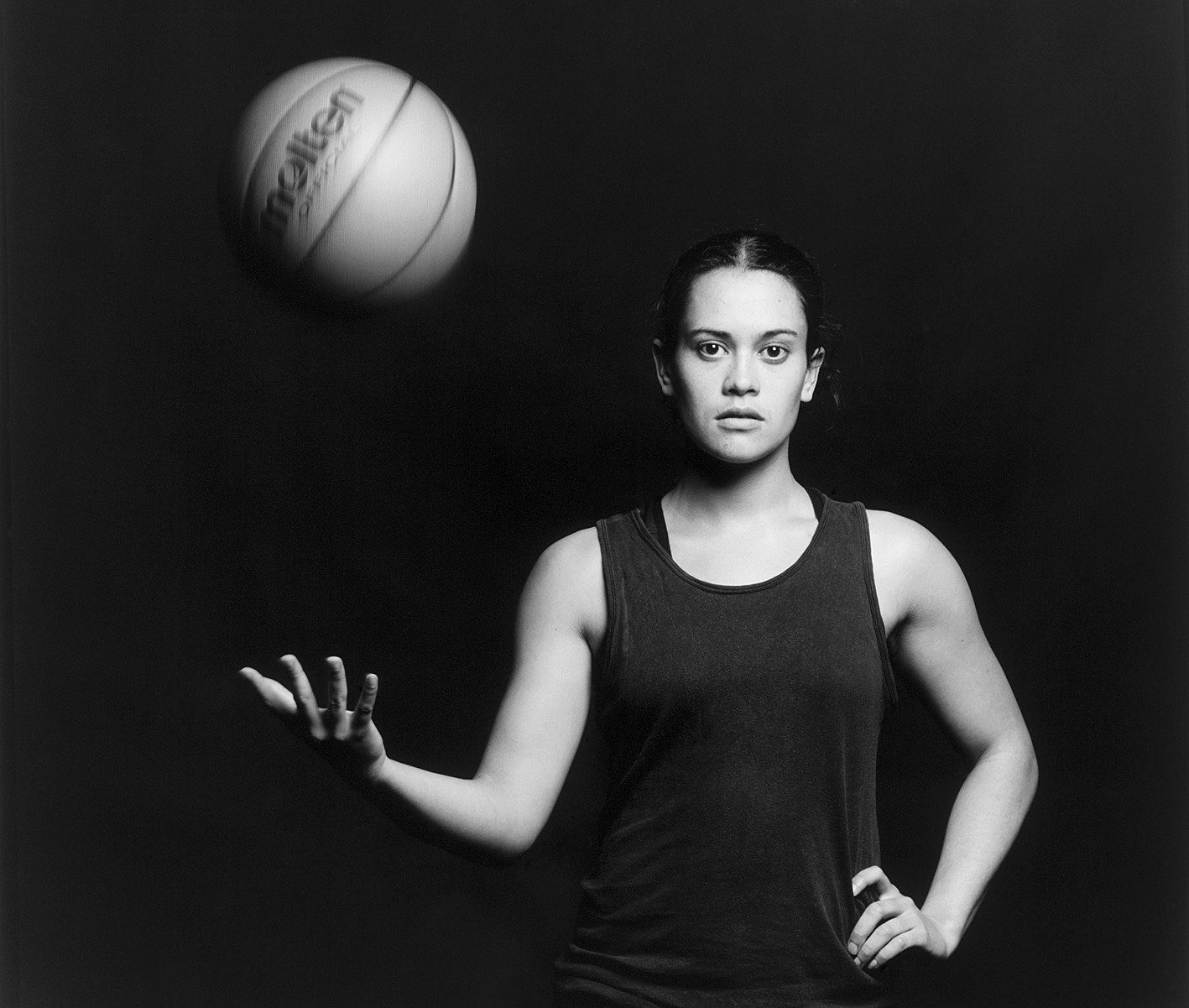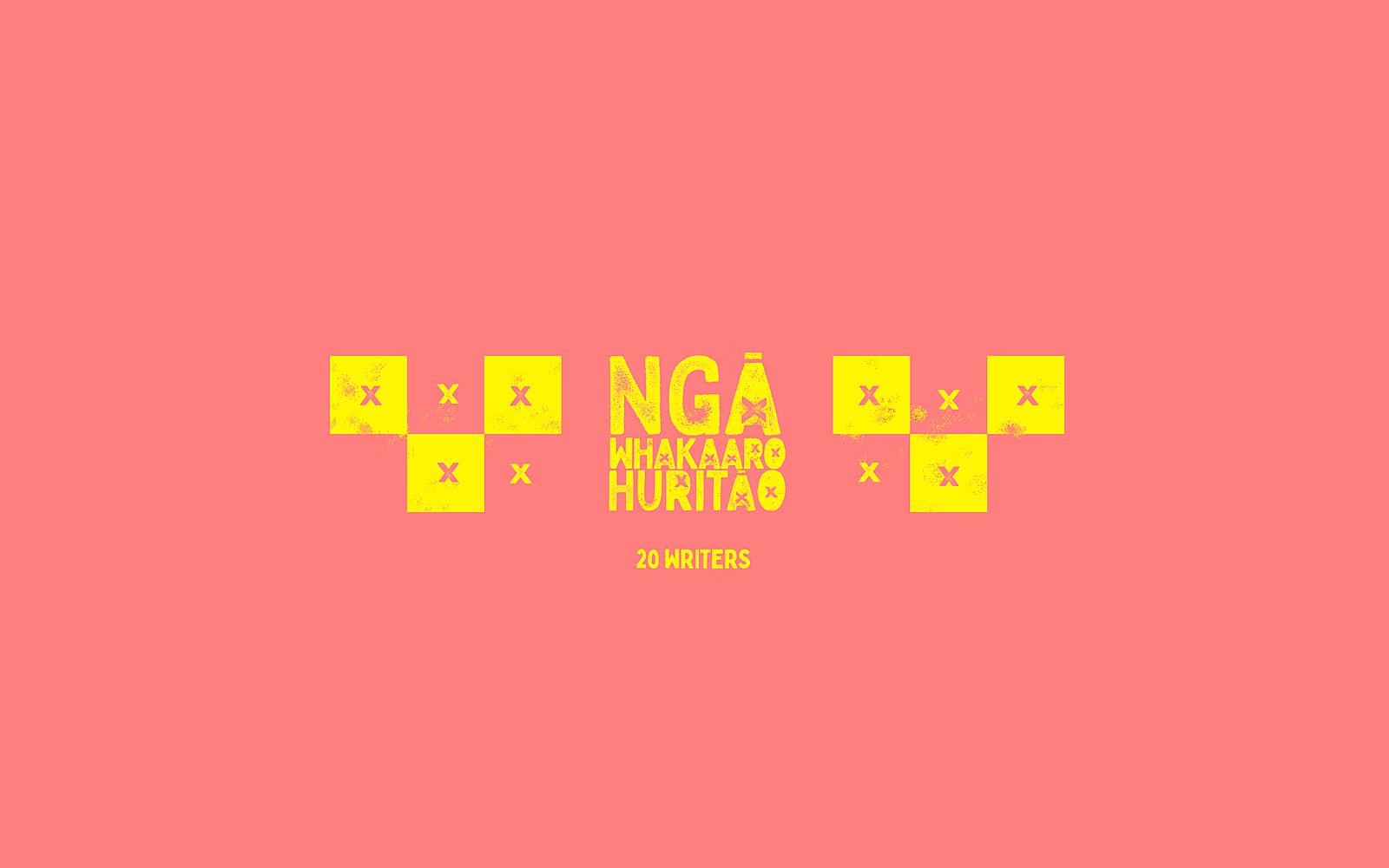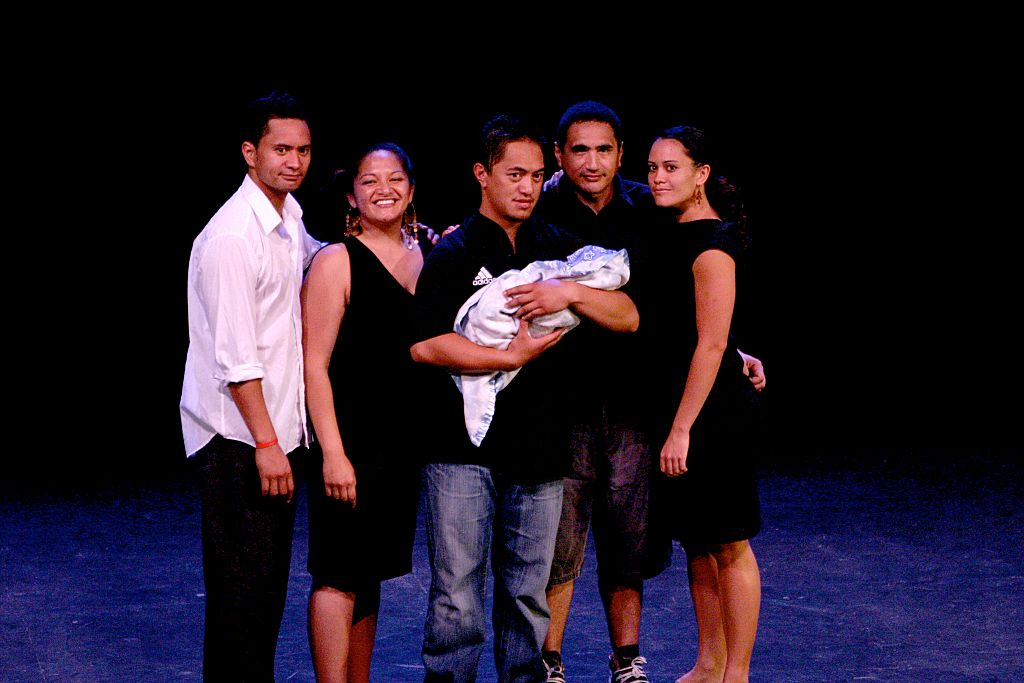Ngā Whakaaro Huritāo: Miriama McDowell
Miriama McDowell shares memories of working on Hone Kouka's 2004 play 'The Prophet' as part of Tawata Productions' rich Ngā Whakaaro Huritāo series.
Over the past two months of lockdown, Māori + Kuki ‘Āirani theatre company Tawata Productions have been publishing a rich series of writing entitled Ngā Whakaaro Huritāo. The collection documents the creative adventures of directors, actors, designers, production managers and more who have helped create live performance with Tawata over the last 17 years of the company's history.
It's a compilation of remarkable memories from the Tawata whānau; indelible moments etched in the lives of each creative. We've loved reading them, so today we share Miriama McDowell's reflection on 2004 production The Prophet and what it taught the actor and director about being an Indigenous artist. For more in the series, head to Tawata's website.
The Prophet
I think one of the best things about being an actor is that you move from job to job, from story to story. Like a story explorer, moving from island to island, collecting knowledge as you go. I remember when my eldest daughter, Talanoa, was three years old and as I was leaving the house for rehearsals she said “where’s your mahi today, Mum?” I loved that – that through me she saw that mahi wasn’t necessarily one fixed thing. I moved from job to job, from place to place, with different people every time. In the context of Covid-19, it’s a recipe for disaster! All those bubbles I move between!
Every job teaches me something. Sometimes it’s about my own tools as a performer, sometimes it’s learning about the world of the play, sometimes it’s to do with what I learn from collaborating with others. With The Prophet, I learnt one of the most formative lessons in my career. It taught me what it means to be an Indigenous artist, a Māori artist.
When I graduated from Toi Whakaari New Zealand Drama School in 2002, I came out into the industry with two fellow Māori actors: Mark Ruka and Jarod Rawiri. We had been involved in a development season of The Prophet during our last few months at Toi, along with our Samoan classmate Marie Williams. Our production was rough and ready, put on at Studio 77 at Vic Uni, directed by Hone Kouka and joined by Jason Te Kare and Waimihi Hotere.
Tawata Productions' Ngā Whakaaro Huritāo series.
That development season was the first experience I’d had performing to Māori audiences. They talk along with you, repeat your lines, harmonise with you when you waiata, comment on your performance to each other in big loud voices. I remember the thrill of being on stage and having to turn on an extra set of ears as the stories you were telling were reflected back at you in real time. We’d stumble off stage in between scenes cracking up about the real life characters in the audience.
The thing about The Prophet was that it gave us a bit of a nest to land into as we graduated. Here was a play that was about young Māori, about suicide, teenage pregnancy, urban Māori and rural Māori. It was dealing with tough stuff but essentially it was very funny, fast moving and set on a basketball court so it was physical and dynamic.
We opened the New Zealand International Festival of the Arts the following year with Nina Nawalowalo as director and Tanea Heke playing Aunty. I was acutely aware that through The Prophet I was surrounded by the best in the business; Māori practitioners who had built an industry for those of us coming out. It was a direct response to their own experiences graduating from drama school a decade earlier. There was no work for them, and their stories weren’t being told; Briar Grace Smith, Nancy Brunning, Rachel House, Hone Kouka, Mitch Tawhi Thomas. They started writing work and putting it on and by the time we came along we could really reap the benefits of all that harvest. This felt like such a privilege, and also a responsibility.
Actors Jarod Rawiri, Waimihi Hotere, Taungaroa Emile, Mark Ruka and Miriama McDowell in the 2006 tour of 'The Prophet' Hawai'ian tour
I remember a day really vividly where Mark Ruka performed his monologue as the character Andrew Beautiful for the first time. We were rehearsing in a concrete carpark under the drama school, with a big basketball hoop set up in the middle of the room. Mark started to speak the words of the character:
I’ll tell you something…I hope it makes sense. Ah, after school I used to go down to the courts and wait for Dad to finish work, just to get a ride home. I don’t any more. See, one day a security recognised me, said, “You’re councillor Dilworth’s son aren’t you?” I nodded. Then he said “Should be careful. There are a lot of bad people here.” I looked around and all I could see were people who looked like me, were Maori. I stood up, then left.
(Beat)
Then I thought of that book.
(Beat)
I asked myself “Are we bad people? Are we? I thought of you, Ty. Wondered, so many of us in a place like that, always in trouble. We must be bad. If so, why? What happened to us?
(Beat)
Have we forgotten how to care? Is that what it is? How to love? Have we?
(Beat)
No.
It was this experience where everyone in the room was one voice. Andrew Beautiful was speaking for us all. As an actor, I was inside my character listening, as a Māori I was listening too, his words were rising up like a wave, crashing around us. He was speaking for all of us, for all of the injustices we held in our DNA. Mark started to cry and his words kept going, pushing their way through the mamae, daring to be told. It was one of the most memorable moments of my acting life because I wasn’t acting. I was listening, feeling, responding.
Another memory I have is doing a workshop with light with Nina Nawalowalo. We all stood in the dark in a line, focused in. The lighting designer Jen Lal would turn on a light or a sequence of lights and Nina would ask us to feel the light, and move towards it. Jen loved reporting back to us that we all turned away from the light, except for actor Maria Walker who, at the time, was the only untrained actor around us. “Bloody drama school doesn’t teach you anything” laughed Jen. We all shook our heads in shame, laughing too.
In 2006, we all got on a plane and toured The Prophet to Hawai’i. Another first for me, touring work internationally, and furthermore, telling Indigenous stories to Indigenous audiences that weren’t Māori. Hone’s play Waiora had toured five years earlier and actor Jason Te Kare had the privilege of being in both those casts. He was the only one who knew what to expect. The Hawai’ian kawa of gifting lei as a sign of gratitude at the end of the play was extended into the theatre – we got used to entire audiences pulling lei out from under their seats and coming up onto the stage to lay them over our heads.
When we performed at Kamehameha School in O’ahu the gifting of lei took longer than the play itself, and we ended up drowning in flowers, stacked one on top of the other, above our heads.
Another vivid memory I have of Hawai’i is their theatre tradition of sharing kai together at the end of an evening performance. The theatres would provide us a hot meal after our shows and we would all sit down and eat together. It was such a wonderful way to end a night in the theatre and helped us all to whakanoa, wind down, and come together. I understood from that experience, where we travelled to three islands to perform, that there is a shared voice between Indigenous people. As Māori artists we are not only speaking for our own, we are speaking for all Indigenous people. I understood how we are not only sharing, but also leading.
This piece is published in partnership with Tawata Productions.
For more reflections from theatre practitioners across the two seasons of Ngā Whakaaro Huritāo, head to Tawata's website.
Header image of Miriama McDowell by John McDermott.




